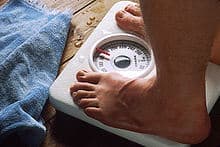If you are trying to achieve a goal, the more often that you monitor your progress, the greater the likelihood that you will succeed, according to research published by the American Psychological Association. Your chances of success are even more likely if you report your progress publicly or physically record it.
“Monitoring goal progress is a crucial process that comes into play between setting and attaining a goal, ensuring that the goals are translated into action,” said lead author Benjamin Harkin, PhD, of the University of Sheffield. The study appears in the journal Psychological Bulletin. “This review suggests that prompting progress monitoring improves behavioral performance and the likelihood of attaining one’s goals.”
Harkin and his colleagues conducted a meta-analysis of 138 studies comprising 19,951 participants that looked at the effectiveness of an intervention or treatment designed to prompt participants to monitor their goal progress. The studies focused primarily on personal health goals such as losing weight, quitting smoking, changing diet or lowering blood pressure. They found that prompting participants to monitor their progress toward a goal increased the likelihood that the participants would achieve that goal. Furthermore, the more frequent the monitoring, the greater the chance of success.
Additionally, the researchers found that prompting participants to monitor changes in behavior had a significant effect on those behaviors but not on the related outcomes (which may be the ultimate goal). In contrast, prompting participants to monitor progress toward actual outcome had a significant effect on the outcome but not the related behavior. For example, prompting people in a weight loss program to regularly watch what they eat may result in a change in diet, but not necessarily achieve the ultimate goal of weight loss, but prompting them to regularly weigh themselves may result in a change in weight, but not necessarily changes in associated behaviors, such as watching what they eat or exercising.
“The implication of this finding is if you want to change your diet, then monitor what you are eating, but if you want to lose weight, then focus on monitoring your weight,” said Harkin.
Additional analysis revealed that monitoring progress had an even greater effect if the information was physically recorded or publicly reported. For example, people who belong to weight loss groups where they regularly weigh themselves in front of other members have a greater chance of achieving their weight loss goals, Harkin said.
“Our findings are of relevance to those interested in changing their behavior and achieving their goals, as well as to those who want to help them, like weight loss programs, money advice agencies or sport coaches,” said Harkin. “Prompting people to monitor their progress can help them to achieve their goals, but some methods of monitoring are better than others. Specifically, we would recommend that people be encouraged to record, report or make public what they find out as they assess their progress.”


